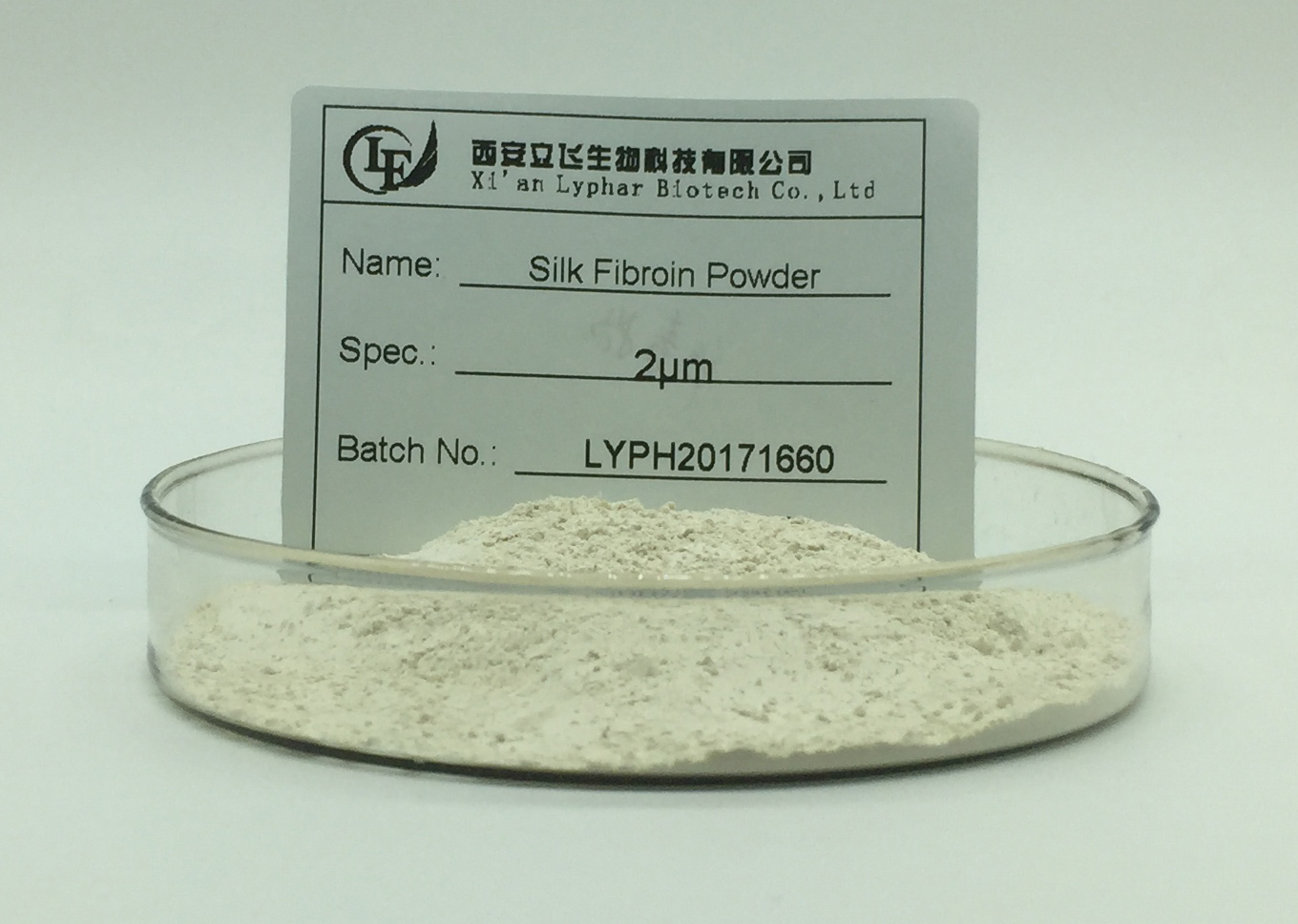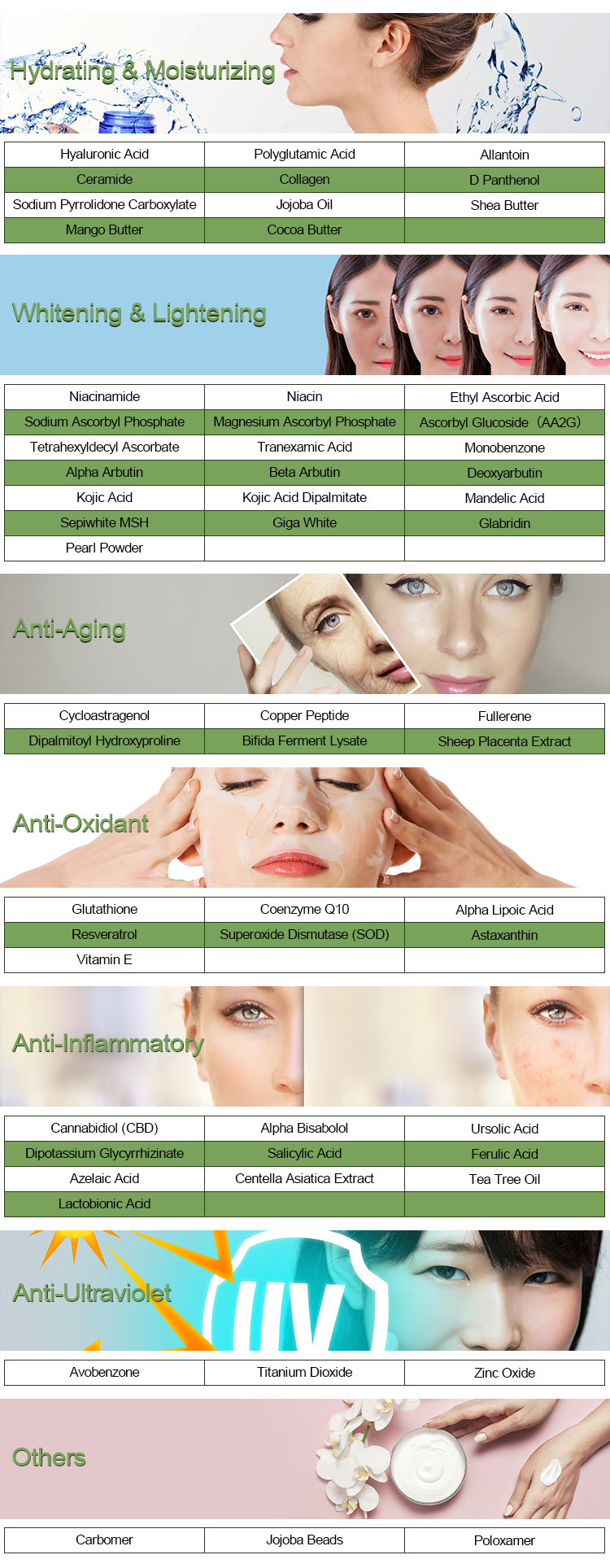Silk fibroin is a natural protein derived from silkworms, and it has found various applications in medicine and cosmetics. Its efficacy, side effects, and precautions depend on its specific use. Here are some common applications and considerations:
Efficacy of Silk Fibroin:
Wound Healing: Silk fibroin has been studied for its potential in wound healing. It can promote tissue regeneration and reduce scarring due to its biocompatibility and ability to retain moisture.
Drug Delivery: Silk fibroin can be used as a carrier for drug delivery systems, as it can protect and release drugs in a controlled manner.
Tissue Engineering: It is used in tissue engineering for its ability to support cell growth and proliferation, making it suitable for applications like artificial skin and cartilage.
Cosmetics: Silk fibroin is used in cosmetics and skincare products due to its moisture-retaining properties. It can help improve skin hydration and texture.

Side Effects of Silk Fibroin:
Allergies: While silk fibroin is generally considered safe and biocompatible, some individuals may be allergic to silk proteins. Allergic reactions could manifest as skin irritation, redness, itching, or rash.
Contamination: Contamination of silk fibroin products during processing or formulation could lead to adverse effects. It’s important to ensure the quality and purity of products.
Precautions of Silk Fibroin:
Allergy Testing: If you are using silk fibroin-based products for the first time, consider performing a patch test on a small area of your skin to check for any allergic reactions.
Quality Control: When purchasing silk fibroin-based products, ensure they meet quality and safety standards. Look for products from reputable manufacturers.
Medical Use: When using silk fibroin for medical purposes, consult with a healthcare professional or follow specific guidelines for the intended application to ensure safety and efficacy.
Storage: Store silk fibroin products as per the manufacturer’s recommendations. Improper storage can affect their quality and effectiveness.
Avoid Ingestion: Silk fibroin is meant for external use in most applications. Do not ingest it.
Consult a Dermatologist: If you experience any adverse skin reactions while using silk fibroin-based cosmetics or skincare products, consult a dermatologist for guidance.

It’s important to note that the efficacy, side effects, and precautions of silk fibroin may vary depending on the specific product and its formulation. Always follow the recommendations provided by the product manufacturer and, if necessary, consult a healthcare professional for personalized advice.
